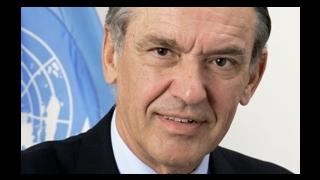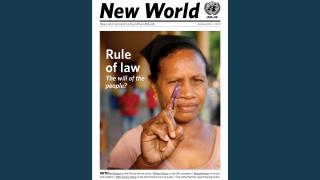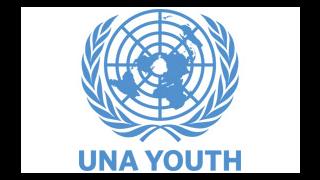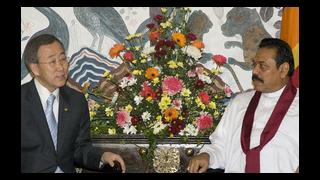There is no denying that the recent election of Uhuru Kenyatta and William Ruto as President and Vice President of Kenya respectively, came as a significant blow to the International Criminal Court (ICC). The ICC had identified Kenyatta and Ruto as bearing responsibility for crimes committed during the 2007/2008 post-election violence in Kenya. Their election has left the belief that the ICC could isolate and marginalise its targets battered. Some have even suggested that the ICC indictments could have helped Kenyatta and Uhuru achieve electoral victory, in a country where it’s reported that just 35% of the population now support the Court.
The situation has elevated criticisms of the ICC as a 'neo-colonialist' institution biased against African states to a new level and put the relationship between Africa and the ICC under the microscope once again. Ugandan President Yoweri Museveni praised Kenyans for rejecting “blackmail by the International Criminal Court and those who seek to abuse this institution for their own agenda”. And Ethiopian Prime Minister Hailemariam Desalegn proclaimed that the Court was “race hunting”. The African Union subsequently passed a resolution insisting that the Court was unfairly targeting African states. Had it not been for the lone dissenting voice of Botswana, the resolution would have passed unanimously.
There have also been numerous calls to dismiss the cases against Ruto and Kenyatta. The trials for both have been repeatedly delayed. Dozens of witnesses have withdrawn their testimonies amidst reports of witness tampering and, in some cases, disappearances. Despite stating that there would be “consequences” if Kenyatta was elected, many ICC member-states have since congratulated Kenyatta on his victory. Given this laundry list of controversies, it is hard not to wonder whether Kenya is the hill the Court's relationship with Africa will die on.
So what is the Court to do?
While it is certainly true that African leaders may not be representing the voices of their citizens, it is imperative that the ICC rethink its approach to its relationship with African states. This will require a politically conscientious adaptation of strategies.
Two crucial issues are the ICC's evolving relationships with the UN Security Council and the United States. On the surface, it may appear that these relationships have nothing to do with its relationship to African states. But it does. William Schabas, professor of international law at Middlesex University in London, rightly observes that “[t]he root of the problem is not an obsession with Africa but rather a slow but perceptive shift of the Court away from the apparent independence shown in its early years towards a rather compliant relationship with the Security Council and the great powers”.
Despite being an independent Court, the ICC has increasingly tethered itself to the Security Council, an international body whose representation of the global distribution of power has far exceeded its expiration date. The Court's relationship with the US is similarly troubling. In recent years, the Court has appeared to be infatuated with the US, a non-member state of the ICC, at the expense of those states – including thirty-four African nations – who ceded a degree of sovereignty in signing and ratifying the Rome Statute. Undoubtedly this relationship is crucial for the Court, but giving the impression that it has aligned itself with the US risks hindering the Court's impartiality and reputation.
The ICC is entering its twelfth year of existence and the institution has matured significantly over the past decade. By showing a willingness to learn and adapt to ever-changing political developments, the Court will ensure its continued political salience. The Court's Kenyan cases need not translate into a disaster for the ICC's relationship with African states. A more balanced and savvy approach to the Court’s political relationships with key members and international institutions isn't simply taking the high road. It might just be the only road.
Mark Kersten is a researcher at the London School of Economics and the creator and author of the Justice in Conflict blog.

















